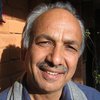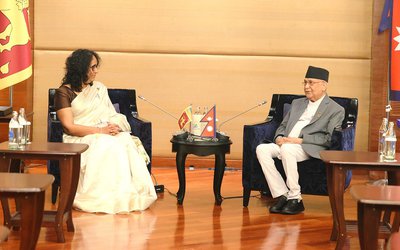A confession by a “murderer” in political guise, eight years after the incident, threatens to reveal the most cruel and ugliest face of the Maoist insurgency, with unanticipated political implications. Lakshi Ram Gharti Magar, a district-level leader of the Maoist party, said a week ago that after the murder of journalist Dekendra Thapa based in the western Dailekh district, he felt like a criminal, and decided that the best way to mitigate his agony was to reveal every thing. “That way, Dekendra’s soul will rest in peace,” he said.
Giving details of the crime, he said Dekendra was captured by the party and tortured, and finally buried alive. This confession appears to give the lie to Maoist chief Prachanda’s public statement about four years ago that his party had given specific instructions to the cadres to carry out executions inflicting the least pain to the victims. Less than 48 hours after Gharti Magar’s confession, Prime Minister Baburam Bhattarai clarified before party cadres that the arrests of Gharti Magar and four others were not carried out under government instruction. Worse, Attorney General Mukti Pradhan instructed the Dailekh district attorney’s office not to take the case forward. A PM apologetic about the arrest of a man as per his own wishes speaks volumes about the culture of impunity. But Bhattarai also had the taste of being defied as the police refused to entertain any pressure.
Journalists and human rights groups have descended on the capital’s streets — outside the PM’s office and residence — as well as in Dailekh. Not only is Bhattarai facing his worst political nightmare, but his defence of the crime has punctured the hopes of key stakeholders in Nepal’s peace process who, only two years ago, lobbied hard to have Bhattarai as PM, asserting that he is the only pro-democracy, pro-human rights and pro-market face in the Maoist party. The US even took the Maoists off its terror list after Bhattarai’s takeover.
Bhattarai has been continuing as caretaker PM for more than seven months now. The general indifference is now fast turning into anger, with journalists and civil rights activists projecting Bhattarai as the one aiding and abetting the crime. President Ram Baran Yadav appears clueless as to how far a president can go when a PM openly tries to stall the proceedings on a murder case. But the message from the international community, mainly the Western missions, appears negative as they have taken note of the direct challenge Bhattarai and the Maoists have posed to the rule of law.
The new government will have two principal tasks — to hold elections to the legislature that may also have to frame the constitution; and to honour past agreements, which also includes forming the Truth and Reconciliation Commission. But no government can be formed without Maoists’ involvement and support. They are unlikely to let go of power, but if they do under pressure from Nepal’s political actors and international stakeholders, they will want their pound of flesh — so that impunity prevails and top leaders are not touched in the Dekendra Thapa murder. Chances of holding elections by mid-May, the deadline set by the “major parties and the government” have receded further as the two surviving members of the election commission retired on Friday. The state and its institutions are in a state of near collapse.
Political parties who have allied with the Maoists over the last six years have “condemned” Bhattarai’s role. But Bhattarai and the Maoists know the price of succumbing to the rule of law so interlinked with the future of democracy in Nepal.
(Indian Express)

Yubaraj Ghimire
Ghimire is a Kathmandu based journalist.
- Manmohan Singh And The Churn In Nepal
- Jan 08, 2025
- Why ‘Revolutionary’ Communist PM Prachanda Went To Temples In India
- Jun 08, 2023
- Why China Is Happy With Nepal’s New PM
- Jan 03, 2023
- Prachanda Sworn In As PM: New Tie-ups In Nepal, Concern In India
- Dec 27, 2022
- Young TV Anchor As Its Face, RSP Rise Takes Nepal By Surprise
- Nov 23, 2022














